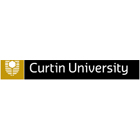Bachelor of Laws/Bachelor of Commerce
Bachelor of Laws/Bachelor of Commerce
This double degree will prepare you for legal practice and give you vital knowledge of today’s legal and regulatory business environments. Curtin’s Bachelor of Laws degree provides the first qualification you need to practise as a lawyer in Australia. By combining this with our Bachelor of Commerce degree and majoring…
Categories
COURSE DESCRIPTION
This double degree will prepare you for legal practice and give you vital knowledge of today’s legal and regulatory business environments.
Curtin’s Bachelor of Laws degree provides the first qualification you need to practise as a lawyer in Australia. By combining this with our Bachelor of Commerce degree and majoring in accounting, taxation, economics, finance, marketing or human resource management, you’ll add a business industry focus to your career.
Our law degree offers a rich and professionally relevant foundation in legal knowledge. You’ll learn core skills essential to effective legal practice and build a strong commercial awareness. From early on in your studies, you’ll start to recognise the importance of respecting the rule of law, along with the responsibilities and ethics of legal practice.
What you’ll learn
Apply knowledge of the Australian legal system, statutory rules and case law principles in both the fundamental areas of legal knowledge and a range of elective fields to the resolution of legal problems; apply broad discipline knowledge to a range of theoretical and practical business situations through research and practical application
Critically and creatively analyze legal problems to articulate the issues involved and apply legal reasoning to make a considered choice between competing solutions; think creatively and critically to generate innovative solutions to complex business and commercial problems
Identify, access, assess and synthesize relevant information from primary legal sources such as cases and legislation and secondary sources such as journal articles and commentaries (including electronic versions of these sources) and gather relevant oral and documentary evidence; access, evaluate and synthesize relevant information from a range of organizational and external sources.
Communicate the outcomes of legal research and analysis effectively, appropriately and persuasively to colleagues, to clients and to other professionals and the broader community; communicate appropriately and effectively in professional and public contexts
Use appropriate electronic legal databases for research purposes and be able to communicate effectively in electronic forms; apply technologies appropriately for a variety of commercial purposes
Maintain intellectual curiosity as to justice and its practical application in the legal system, be able to identify areas where their legal knowledge and skills require further development, and to critically reflect on their own performance as legal professionals, making use of feedback as appropriate; demonstrate initiative, responsibility and lifelong learning skills by applying critical reflection and active participation
Articulate the similarities and differences between local and other jurisdictions, including interstate and overseas ones, and be aware of the principles of public and private international law; describe global and cultural issues as related to the business area and their impact on local and international communities
REQUIREMENTS
Students from different countries should have qualifications equivalent to Australian Year 12 and a scaled mark of at least 50 in English, Literature, or English as an Additional Language or Dialect.
IELTS (International English Language Testing System) – Listening, Reading, Writing, and Speaking – 6.0; Overall band score 6.5; TOEFL Score: 79 (overall); Reading 13; Listening 13; Speaking 18; Writing 21; Pearson Test of English – Listening, Reading, Writing, and Speaking – 50; Overall band score 58; TOEFL (Test of English as a Foreign Language) and PBT (Paper Based Test) – 570 and 4.5 in TWE; C1 Advanced Formerly known as Cambridge English: Advanced (CAE) 176 with 169 in Reading, Writing, Listening and Speaking. C2 Proficiency Formerly known as Cambridge English: Proficiency (CPE) 190 with 176 in Reading, Writing, Listening and Speaking.
EDUCATIONAL INSTITUTION
Curtin University is Western Australia’s largest and most culturally diverse university with Australia’s third largest international student population. Around 60,000 students from more than 130 countries study a Curtin degree, at locations including Perth, Margaret River, Kalgoorlie, Sydney, Malaysia and Singapore. Our cultural diversity adds a rich and valuable dimension to the campus atmosphere, preparing all graduates to live and work effectively in an increasingly global environment. We offer a range of industry-aligned undergraduate and postgraduate courses in business, humanities, health, engineering and related sciences. We also have a long-standing focus on Aboriginal and Torres Strait Islander education and culture, supported by our Centre for Aboriginal Studies.Curtin is widely recognised for its practical research that is focused on solving timely, real-world problems. In recent years our research activity has grown significantly, driving our rapid rise up the international university rankings.As a university that never settles, we will continue to develop existing partnerships and establish new ones in areas relevant to our research and teaching.

